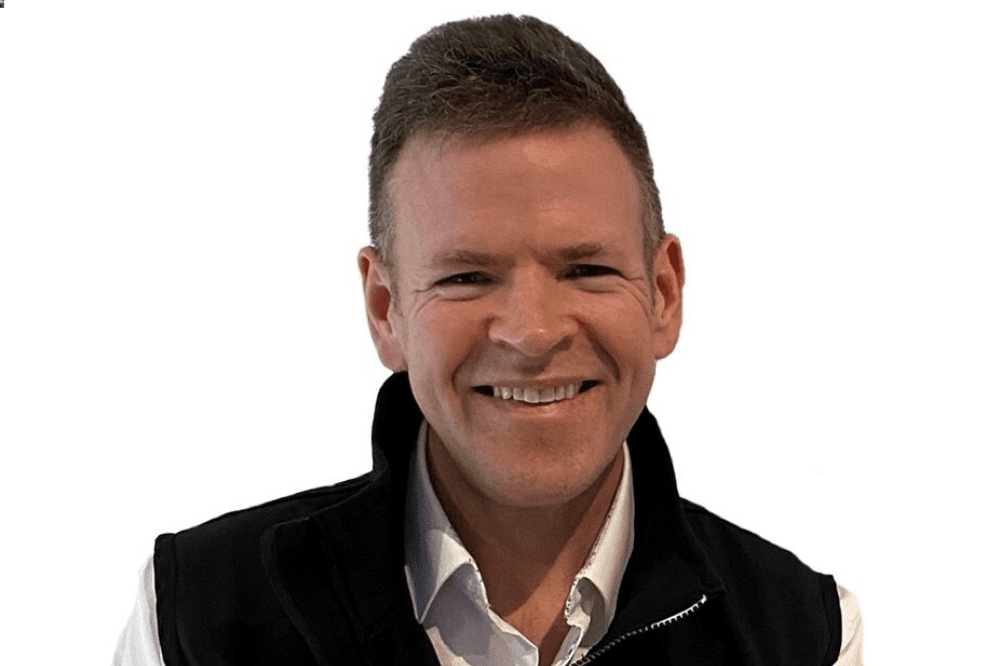Brett O’Brien: Walking the talk of risk management

Every day, O’Brien walks 20,000 steps before dawn. He said this provides “virtues” for his body and mind, and he regards this as a way of practising risk management for his health.
The consultant said failing to look after your health in this way, “renders managing all other assets … more complicated and potentially less enjoyable,” he said.
O’Brien drew a direct link between this personal philosophy and how he regards his business and customers.
Read next: Could a $10 billion reinsurance pool help farmers fight drought?
“At OBA, we say Australian farmers do not plan to fail,[but] not insuring livestock for the financial impacts of extreme weather is ultimately failing to adequately plan,” he said.
O’Brien, now aged 46, he said recent life events have underscored the importance of his personal risk management philosophy.
“The entirely unexpected, devastating passing away of my father-in-law at the young age of 54 due to a heart attack, and having a child myself, heightened my own sense of mortality whilst emphasising [my] long-held belief in the need to focus on personal health for optimum living,” he said.
O’Brien suggested that applying a risk management approach to all aspects of his life has had business benefits.
“When associates can see with their own eyes that you take care of yourself, they conclude that you may, or likely are capable of, taking care of other interests, including potentially theirs,” he said.
O’Brien said optimum performance as a risk consultant requires a sharp mind, which in turn, depends on a healthy body.
Late last year, the insurance industry veteran called on the government to back a $10 billion reinsurance pool to help farmers fight drought, one of the biggest issues facing farmers in Australia.
“At OBA, we have proposed to Treasury that the Australian Reinsurance Pool Corporation (ARPC) be replicated for want of a better word, to address drought, for which we propose it be called the AGRP – Australian Agriculture Reinsurance Pool,” said O’Brien.
His push for insurance cover for drought-stricken farmers began in early 2019 when he started his consulting firm.
“Initially it was a consequence of there being a lack of livestock drought insurance products on the Australian mainstream market,” he said.
He said it’s a longstanding issue that the government doesn’t subsidise rural insurance products like governments do in other countries where there are similar agriculture systems to Australia’s.
O’Brien said under the AGRP system he’s proposing, farmers would need to partake and pay a premium that would then be backed by the government’s risk pool.
“So, if you choose not to take out insurance then you wouldn’t be covered by such a pool. We do take the view that pastoralists need to be accountable. I adopt the same principle [as the ARPC] – i.e. that farmers must buy insurance if they ultimately seek to be covered for the peril of drought, for which currently many are not,” he said.
O’Brien said several insurers support his plan in principal and would like a form of government backing to help farmers better cope with droughts through insurance.
Read next: Insurance veteran makes government plea
Farmers are on board too.
“Pastoralists on the eastern seaboard, NSW and Queensland, are very much behind this. Pastoralists are very much on board with this on the basis that the pricing’s right,” he said.
Earlier last year, the ARPC welcomed the government’s plan to establish a $10 billion reinsurance pool for cyclone and cyclone-related flooding events in northern Australia.
At the time, the federal government said its reinsurance pool will reduce premiums by over $1.5 billion over 10 years. The scheme will cover household, strata and small business property insurance policies and will operate Australia wide but target support to cyclone-prone areas in the north of the country.
The scheme is due to start next month.





